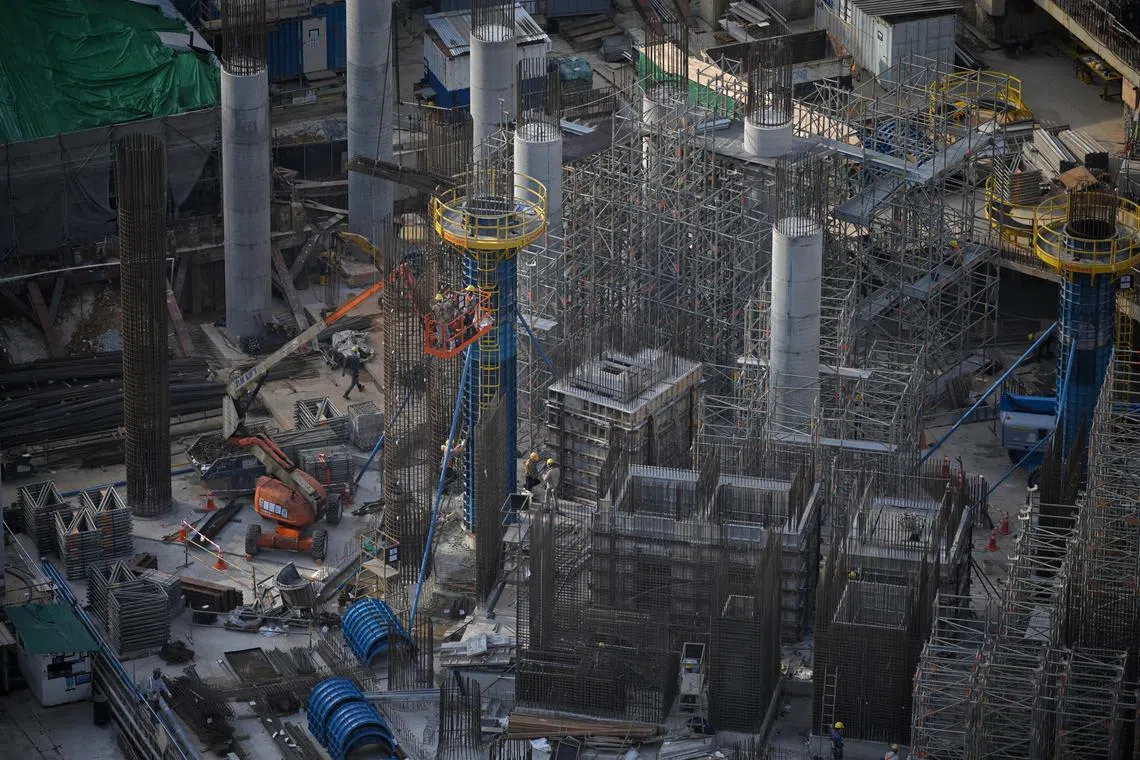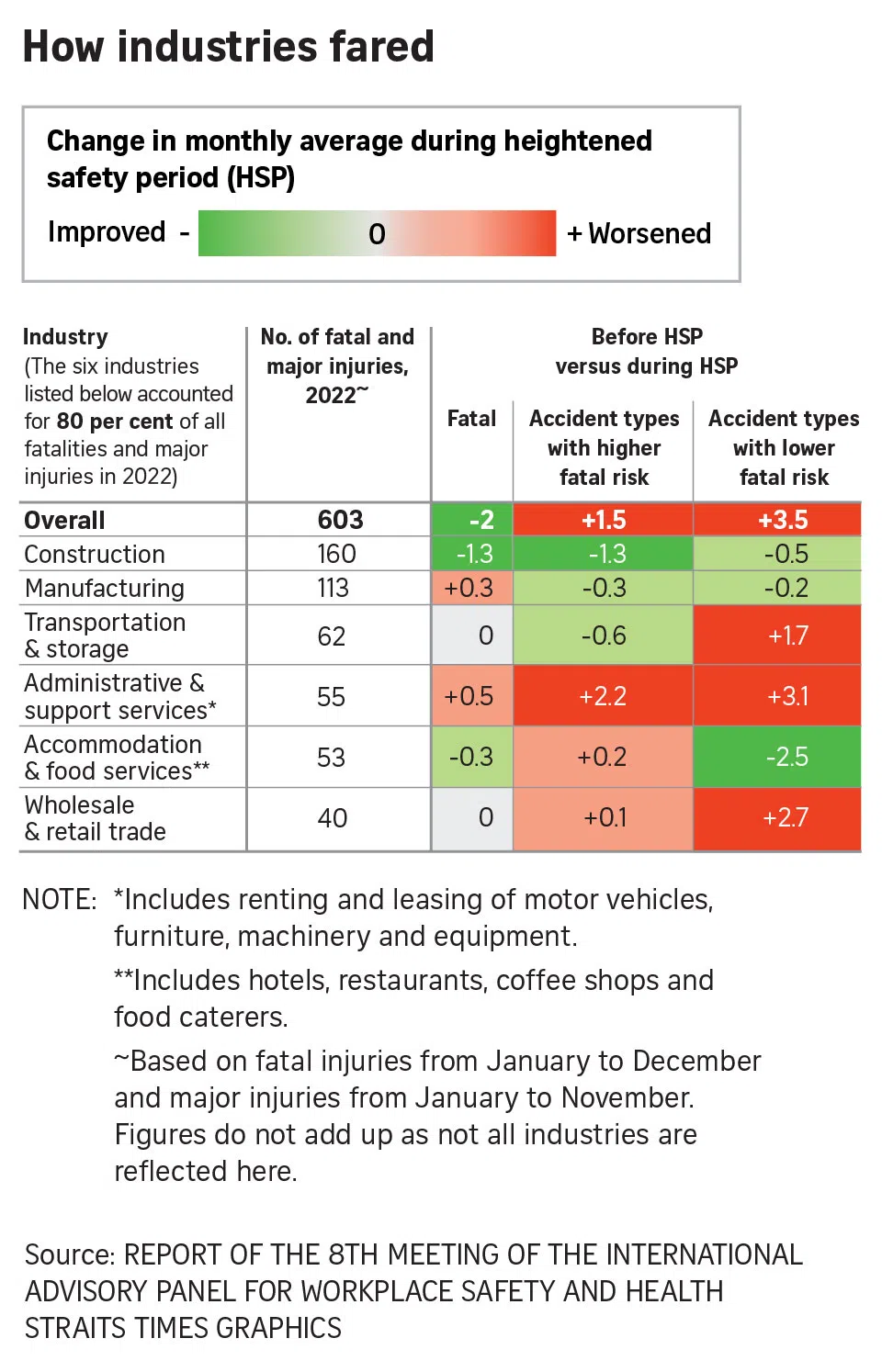Fewer workplace deaths but major injuries up during heightened safety period: MOM
Sign up now: Get ST's newsletters delivered to your inbox

The heightened safety period has led to improvements in the construction industry.
ST PHOTO: MARK CHEONG
SINGAPORE - The number of major injuries has risen despite the six-month heightened safety period introduced by the Ministry of Manpower (MOM) in September 2022, which suggests that safety issues continue to be prevalent here.
There was an average of 49.1 major injuries per month from January to August 2022, compared with 55.3 such incidents between September and December, MOM said in figures released on Thursday.
And while there have been fewer workplace fatalities in recent months, MOM is considering whether to extend the heightened safety period beyond end-February, said Senior Minister of State for Manpower Zaqy Mohamad.
There were 1.6 workplace deaths per 100,000 workers prior to the imposition of the stricter safety measures, during which firms with serious lapses that lead to severe or fatal accidents are barred from hiring new foreign workers for up to three moths.
The fatality rate fell to 0.9 deaths per 100,000 workers from September to December, bringing the overall fatality rate for 2022 to 1.3 deaths per 100,000 workers. There were 46 workplace deaths in 2022,
Speaking at an event where the Government accepted in full the recommendations made by its International Advisory Panel for Workplace Safety and Health (WSH), Mr Zaqy said the heightened safety period has been akin to the circuit breaker for the pandemic.
“It gave us time to think... about what we can do differently, take a step back, look at what measures can go upstream and see how the industry performs,” he said. “We’ve seen certain bright spots but there are still areas of concern that we think we can improve.”
The heightened safety period has led to improvements in the construction industry, which saw a drop in its death and major injury rate even though the sector was still the largest contributor in 2022 with 160 out of 603 such incidents.
However, sectors such as transportation and storage, administrative and support services as well as wholesale and retail trade recorded increases in major injuries.
Examples of such incidents include an uptick in slips, trips and falls in food and beverage settings, said an MOM spokesman.
The period of heightened measures saw companies in higher-risk sectors conduct a mandatory safety timeout. These included the construction, manufacturing, marine, process or transport and storage industries, as well as firms in other industries which use heavy or industrial vehicles, such as lorries and forklifts.
Top executives also had to personally account to MOM for safety issues and accidents and explain how they were being rectified, the spokesman added.
Most of the major injuries in recent months involved workers who had less than three years of experience in their company. More of them were from small and medium-sized enterprises (SMEs) as opposed to large firms, noted MOM.
This is in contrast with mid-2022, when Manpower Minister Tan See Leng said most of those who had died at workplaces or were in accidents were experienced staff.

Mr Zaqy said MOM has yet to study this in greater detail, but the thinking is that this was due to a loss of experienced workers as a result of the pandemic.
He said that with the economy ramping up and the entry of new workers, there is a need to renew induction training and training beyond the foundation level.
MOM is watching workplace safety indicators closely and will let industries and the public know when it has decided whether to extend the heightened safety period, he said.
To better address workplace safety, the Government on Thursday accepted all eight recommendations made by its international advisory panel.
The recommendations include extending WSH requirements to contractors across the whole supply chain to include sub-contractors and vendors and writing safety technology requirements into contracts starting with public sector procurement.
The panel also advised putting greater emphasis on top management of companies taking responsibility for safety, such as by going for courses to stay up to date on the latest guidelines and industry practices.



